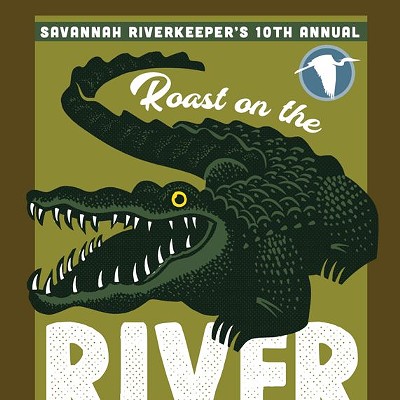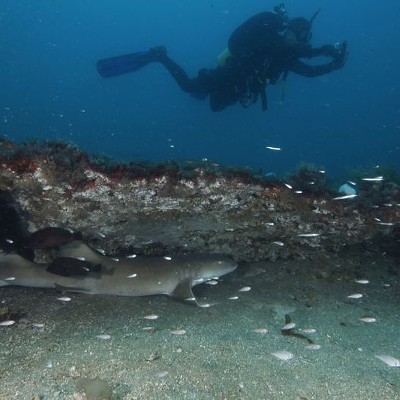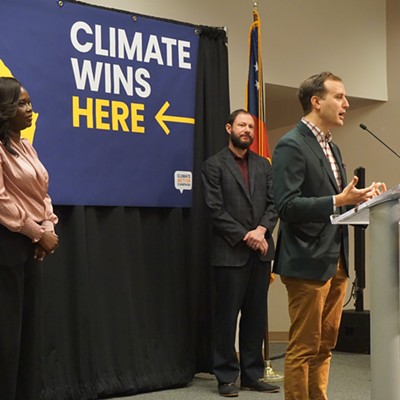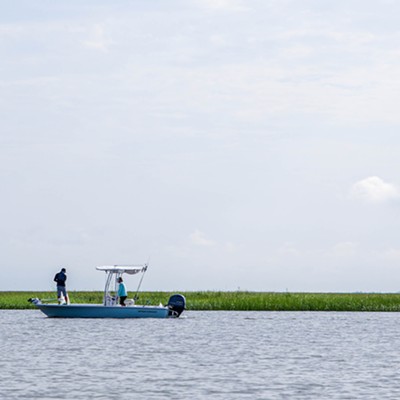THIS Saturday, supporting an important cause comes easy.
Don’t Drill GA, a coalition of nonprofits, hosts a concert in the back lot of North Beach Grill on Tybee. Between sets, guest speakers will talk about the dangers of offshore drilling and seismic testing.
This important event comes at the perfect time.
“The permit applications to conduct seismic airgun blasting in the Atlantic Ocean collectively span a massive area from Cape May, New Jersey, all the way to Cape Canaveral, Florida,” explains Paulita Bennett-Martin of Oceana. “Seismic airgun blasting, on the scale that is currently being proposed, has never been allowed along our Atlantic coast. Marine animals depend on sound for communication and survival. Seismic blasts disrupt the ability of marine mammals to feed, mate, raise their young, avoid predators, and communicate. To think that we might now subject marine animals to seismic airgun blasting for the purpose of offshore oil—it’s mind-boggling.”
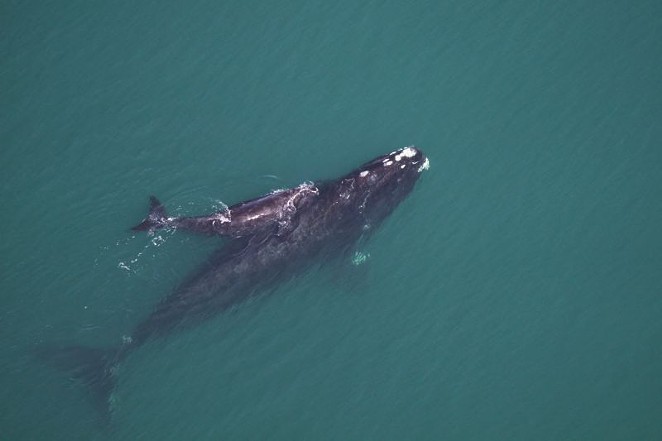
Simply put, offshore drilling and seismic testing are dangerous and extremely harmful to our coast.
“Right now, President Trump and Secretary Zinke are slashing offshore drilling standards and putting industry profits ahead of coastal communities and marine life that is most at risk from devastating oil spills,” says Bennett-Martin. “Proposing to open up nearly all U.S. waters to drilling while slashing current safeguards is preposterous. Right now, we need more safety, not less. Coastal communities are overwhelmingly opposed to expanded offshore drilling. This move is out of touch with the public.”
Local environmental organizations who are part of the Don’t Drill GA coalition are taking a stand against offshore drilling.
Kris Williams works with the Caretta Research Project, which allows participants to come interact with sea turtles.
“Obviously, we’re against drilling on the coast,” explains Williams. “There’s been relatively little research done on the impact of seismic blasting, but there have been some studies done, and the sea turtles display avoidance behavior and try to get away. It causes so much damage to all marine life. Physically, it could cause auditory damage, any kind of hearing loss—permanent or temporary. It could kill the turtles. It could cause damage to their tissues, and if it damages their hearing, it could increase their interaction with boaters.”
It’s not just turtles that are affected by this type of intrusion—it’s all marine life, from big to small. North Atlantic right whales are endangered and come only to our coast to have their babies.
The blasts also harm plankton.
“Seismic blasting has a huge impact on plankton,” Williams shares. “Zooplankton is the base of the marine food chain. That’s going to affect fisheries and all the food webs all the way up the chain. It’s a very big deal. You have to think on an industry level.”
“I want to be clear that species all the way down to plankton can be impacted by the seismic blasting,” stresses Bennett-Martin.
Jacob Oblander with the Savannah Riverkeeper adds that offshore drilling is also a major economic problem.
“It’s a threat to tourism, recreation, and fishing, which drives our local economy,” he explains. “The number of jobs and possible revenue from offshore drilling is a fraction of what we currently have in the tourist-based economy.”
“Our commercial fisheries, tourism, and all-around coastal way of life is threatened by oil spills off of our coast,” adds Bennett-Martin, “because it is not a matter of if, it is almost always a matter of when.”
If offshore drilling is allowed here on the proposed level, it will certainly affect the health of our waterways.
“The health of our waters is important because it is home to countless marine species,” Bennett-Martin explains. “The ocean provides seafood resource and untold recreational experience which reward our local coastal communities daily, and it draws a huge tourism and waterfront economy, which provides over 23,000 jobs and roughly $1.3 billion in GDP just here in Georgia alone. This is all directly related to healthy water. We should protect what we know works, and not bet on a long shot in a dirty industry.”
“It affects us all, not just fisherman or people who are into the ocean,” says Oblander. “It affects every part of how our coast functions.”
As residents of a coastal community, and also residents of this planet, we all need to have a vested interest in the health of our waterways and marine. The concert on Saturday should bolster that interest.
“We discussed the need to bring this issue forward, and take it out of environmental meetings and lectures and into the public in other types of events,” explains Bennett-Martin. “What better way to do this than by bringing people together through music? All the musicians performing have a special connection to coastal Georgia and hope to connect others with the beauty of our oceans.”

